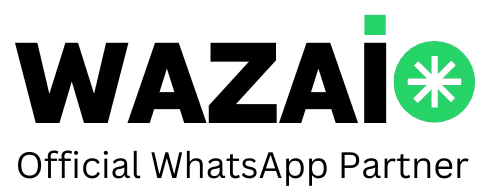“`html
Meta Opens Third-Party App Calls for WhatsApp and Messenger in 2027
The digital communication landscape is poised for a transformative update in 2027. Meta, the parent company of globally prevalent platforms WhatsApp and Messenger, has announced a major shift to open these platforms to third-party app calls. This strategic decision is monumental, reflecting Meta’s aim to foster a more interconnected and seamless digital ecosystem.
Understanding Meta’s Bold Move
Meta’s decision to integrate third-party app calls into WhatsApp and Messenger isn’t just a technical upgrade—it’s a clear indicator of how the company envisions the future of digital communication. As digital platforms become more ubiquitous, **ensuring interoperability** between various services becomes more crucial than ever. Here are a few significant aspects of this move:
- Interconnectivity: By allowing third-party apps to connect with WhatsApp and Messenger, Meta breaks down barriers between siloed communication systems, enabling more fluid user experiences.
- Innovation Opportunities: Developers are now empowered to innovate within Meta’s ecosystem, crafting applications that can seamlessly integrate with these platforms for both personal and enterprise user bases.
- Competitive Edge: In an era where tech giants are vying for user engagement, this integration sets Meta apart, potentially increasing user retention and satisfaction through flexible and versatile service offerings.
The Technical Landscape of Third-Party Integration
To comprehend the full impact of this development, it’s important to delve into the technical underpinnings and potential challenges that come with third-party app calls. Meta’s approach will likely include:
API Development
Meta is expected to launch robust APIs (Application Programming Interfaces) that will allow developers to design external applications capable of calling functionalities within WhatsApp and Messenger. This openness is expected to fuel significant advancements in app development, leading to:
- Custom Communication Tools: Businesses and developers can create tailor-made tools that enhance customer interaction, streamlining operations and boosting productivity.
- Enhanced Accessibility: Being able to integrate with other platforms enhances user accessibility, particularly in professional settings where communication tools need to be versatile and comprehensive.
Security Challenges
With openness comes vulnerability. Meta must strike a balance between convenience and security to protect sensitive user data. Key considerations will include:
- Data Encryption: Ensuring that all calls made via third-party apps are subject to end-to-end encryption, maintaining the integrity and confidentiality of user communications.
- Permission Protocols: Developing stringent authorization processes so users can control which applications have access to their data and communication channels.
User Benefits and Potential Barriers
As with any significant technological update, there are pros and cons to consider from a user’s perspective. Here are some potential benefits and barriers:
Benefits
Meta’s strategy focuses largely on enhancing the user experience. Anticipated user benefits include:
- Increased Flexibility: Users can enjoy a more versatile communication experience, integrating favorite apps to suit personal or professional preferences.
- Streamlined Workflow: Business users, in particular, will benefit from integrated systems that reduce the need for constant app-switching, making operations more seamless.
Potential Barriers
While the integration is promising, several concerns must be addressed:
- Privacy Concerns: Users may be wary of third-party developers accessing their communication data, necessitating robust privacy measures and transparency from Meta.
- Compatibility Issues: Ensuring that third-party apps are consistently compatible with WhatsApp and Messenger updates may present challenges, potentially disrupting user experience.
The Future Outlook
Meta’s initiative to open WhatsApp and Messenger to third-party app calls could set a precedent in the tech industry, encouraging other companies to adopt similar open-ecosystem models. It signals a future where digital communication is more interconnected and customizable than ever before. Here’s what we can expect in the coming years:
- Increased Collaboration: Industries ranging from healthcare to education may develop specialized apps that seamlessly integrate with communication platforms for improved service delivery.
- New Business Models: Companies may adopt new strategies to monetize through integrations, offering premium services or advanced features via third-party apps.
- Constant Innovations: As developers leverage Meta’s open approach, the market could see a surge in innovative apps designed to enhance communication functionalities across various sectors.
In conclusion, Meta’s decision to open WhatsApp and Messenger to third-party app calls signifies a profound shift in digital communication strategies, emphasizing connectivity, innovation, and user empowerment. As 2027 approaches, both users and developers eagerly anticipate the potential this initiative holds for the future of interconnected communication systems.
“`



